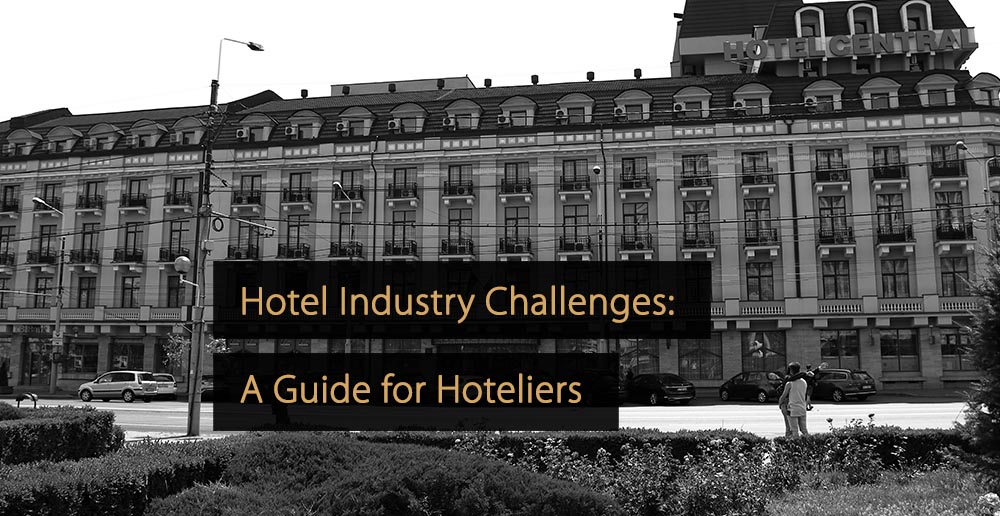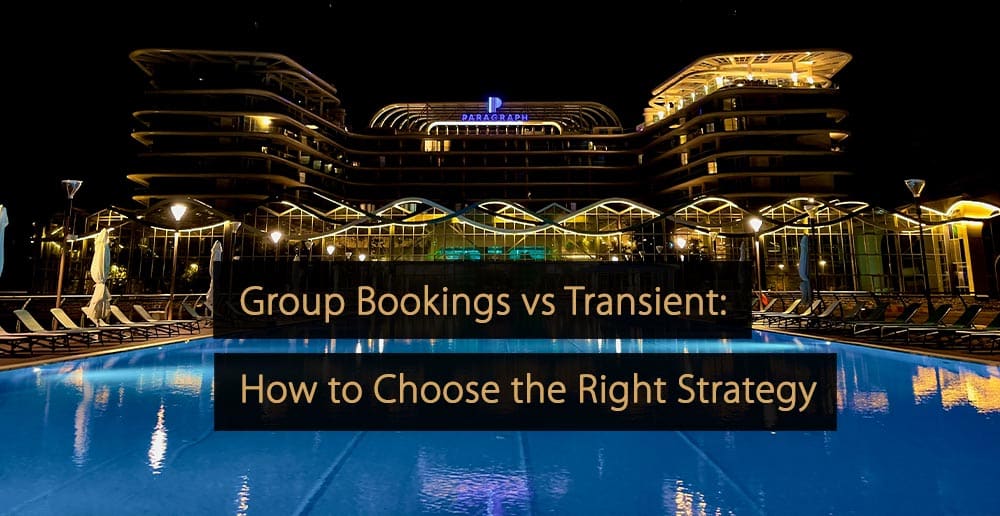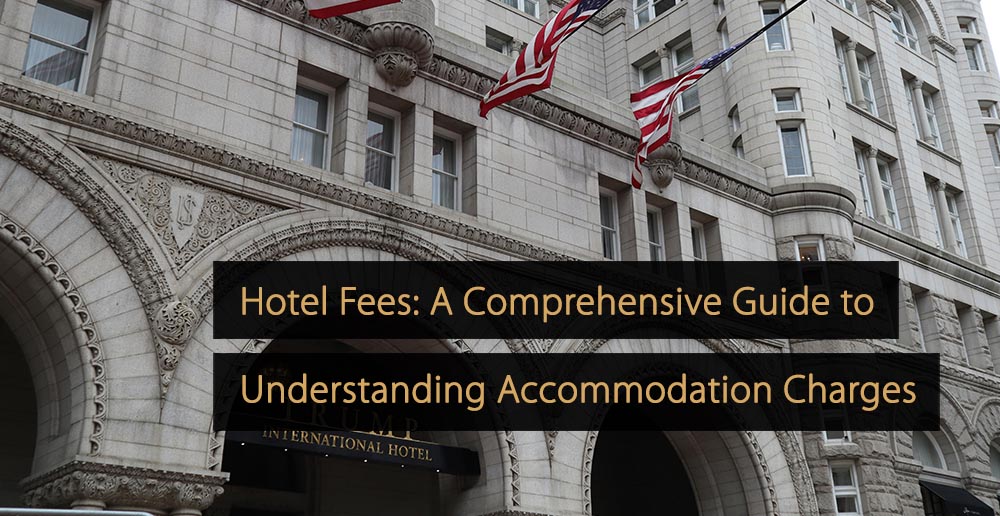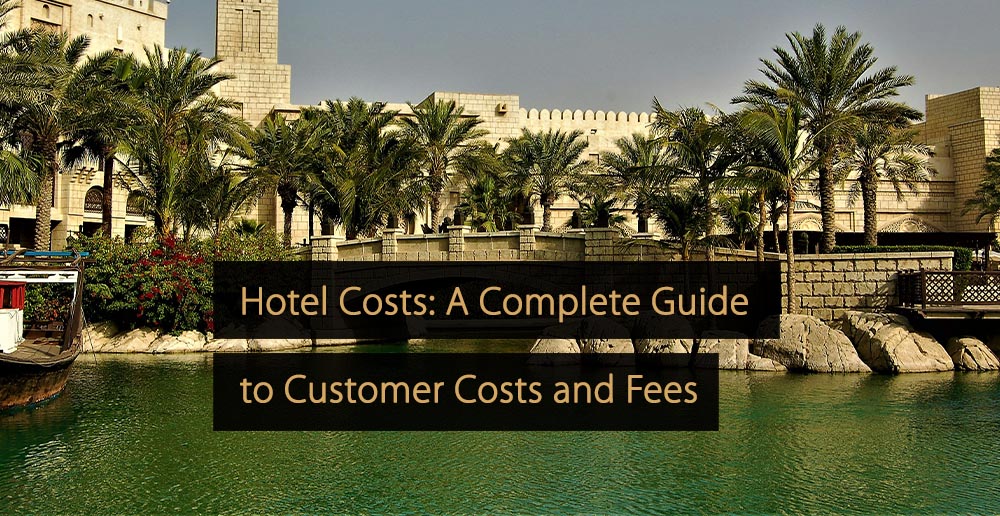Starting a hotel business is an exciting prospect. You’ll be entering the hotel industry, an economically and socially important sector offering various opportunities at all skill levels. Before you jump in, though, some essential factors must be considered. In this article, you’ll learn everything you need to know as you prepare to enter the industry.
Table of Contents:
- What Is the Hotel Industry?
- 8 Main Aspects to Consider When Starting a Hotel Business
- Learn About Hotel Business by Knowing KPIs for Hotels
- Pricing Strategies For Different Hotel Business Types
- Understanding Hotel Management
- Creating a Hotel Budget Plan for Your New Hotel Business
What Is the Hotel Industry?
The hotel business is part of the hotel industry. This industry is closely related to the hospitality industry, forming a major part of it, and is also connected to the travel industry. The main difference between these two and the hotel industry is that the latter is concerned with serving those who need a place to stay for one or more nights. A hotel business might also provide various hospitality and travel services, such as bars and restaurants, or help with travel arrangements, but its primary role is to offer accommodation.
A hotel business generally doesn’t offer long-term accommodation, although some hotels can provide it for customers who want a stay of weeks or even months. The hotel industry is very broad, covering everything from simple bed-and-breakfast establishments, hostels, and motels to luxury hotels costing thousands a night. It is an industry that caters to everyone, from backpackers to celebrities. For more information about the hotel industry, read “Hotel Industry: Everything You Need to Know About Hotels!”
8 Main Aspects to Consider When Starting a Hotel Business
The hotel business isn’t something you should enter into without careful planning. In this section, you’ll discover some main considerations when considering your new venture.
Location
Hotel businesses often stand or fall by their location. While there are many ways you can make your hotel unique and appealing, a good location often seals the deal for a customer. It’s your biggest potential advantage and could be your most significant detriment. A good location might already have too many competitors, while a spot with fewer other hotels might lack the attractions a customer is looking for.
If your hotel is in a poor location, all the steps you take to make it appealing can come to nothing. Good rooms, excellent hotel management, astute marketing — all of these can be outweighed by a bad location. Assuming that you find a property in an ideal location, you must take full advantage of it. Any hotel business needs a UVP: a unique value proposition. Your hotel needs to offer something other hotels in the same location do not.
Buying an Existing Hotel or Building From Scratch
When starting a hotel business, you need to decide whether to buy an existing property or build one (either from scratch or by converting a building constructed for a different purpose). There are benefits and drawbacks to either approach. An existing hotel comes with all the permits and adaptations you need. If it’s already generating revenue, you can reasonably assume that it will continue to do so.
Experienced and knowledgeable staff will already be in place, and you may have regular guests and good word-of-mouth publicity. You’ll have access to the hotel’s records, including details of past guests — a goldmine of information. On the other hand, while constructing your hotel from scratch comes with higher risks, it also allows you much more freedom. You can control everything from the design of the building to the materials used in its construction.
Your Hotel Business Style
Hotel businesses come in all sizes and all varieties. The type of business you want to operate will significantly affect your decision-making. If you’re planning a small, unique boutique hotel, your main focus must be on what makes your hotel special: its theme or character. A family-oriented hotel will need to offer amenities and features that will appeal to those traveling with children, such as large rooms and access to activities that children enjoy.
A budget hotel aiming to attract younger, less moneyed travelers will be able to scale back its amenities but must provide a fun and exciting atmosphere. At the other end of the market, luxury hotels must justify their higher prices by offering outstanding services and amenities. You need to determine what kind of hotel you wish to operate and the kind of clientele you hope to attract to plan effectively.
Competitors
Competing hotel businesses in the same locale as your proposed establishment can offer a wealth of information. Researching these can give you a much more realistic picture of what will work and what won’t. Which hotels are the most successful, and what sets them apart? What type of guest tends to come to hotels in your location? Look at the length of stay, how many cancellations to expect, how many guests are no-shows, and so on.
The key figures are average room revenue, occupancy rates, and overall operational efficiency. You should also note which hotel amenities others in your area provide to determine your future guests’ expectations. Study the problem areas for your competitors: do guests complain of poor service, high costs, and outdated hotel technology? If so, you can compete by offering something missing from the current hotel landscape.
Hotel Business Feasibility
A business feasibility study involves taking all the information you’ve collected so far and determining the workability of your idea in light of this. You’ll need to consider a range of factors: the costs involved, the time it will take to generate a profit, and what the benefits and detriments might be to you as the hotel’s owner. You will need to generate a financial plan and documentation known as a pro forma. You’ll also need to work out what your sources of capital would be.
Constructing your financial model involves working out your budget and determining your break-even point, considering all the factors that could affect your business’s finances. Your pro forma will include your income, cash flow, and balance sheet information. You’ll need this to evaluate the likely cash flow for your business and show it to potential investors.
Hotel Business Yearly Planned Budget
A hotel business requires a detailed yearly budget plan. The modern hotel business is complex, with many different departments, requiring significant hotel investment and thorough preparation. Creating a successful budget for your hotel business is more than simply balancing the incomings and outgoings. You need to analyze expenses to minimize costs, accurately forecast demand, and effectively determine how to meet guests’ expectations.
To optimize your budget, you must consider which hotel technology will help cut costs and improve services. To ensure that the budget is as comprehensive and detailed as possible, budget planning should involve all of your department heads. Have them present the figures from their departments and assist in consolidating that information into an overall plan.
Staffing & Recruitment
A good hotel business needs good personnel. Staffing is vital in any industry, but in the hotel industry, it’s crucial. You need quality staff at every level of hotel departments. Considering your hotel’s UVP, consider the organisational culture you plan to establish. You can’t begin recruitment until you determine what kind of people will contribute to this culture. In the hotel industry, personal qualities are essential.
An individual can be trained in the skills and procedures needed, but instilling the values and attitudes you’ll want is much harder. It can be hard to decide which staff to hire first. It’s often a good idea to begin at the management level to get the people you need to start your business. You should also hire your marketing team early on in the process.
Digital Marketing Strategy
A hotel business needs an excellent digital marketing strategy to succeed in today’s hotel industry. Your first step should be to build a quality hotel website with e-commerce functionality so your guests can book through the site. The site’s booking function must work well on all devices, from desktop computers to smartphones.
A successful digital marketing strategy doesn’t just mean having an excellent hotel website. Digital marketing also means making use of other platforms. Sites like Hotels.com, Expedia and Booking.com are increasingly important when generating custom content for your hotel. A well-managed social media presence is also vital; setting up a hotel on Instagram, Facebook, TikTok etc should be a priority. Showcase your business with high-quality photographs, video clips, and text content. Engaging a PR firm to help promote your business is a good idea.
Video: Hotel Social Media Marketing – Simplified!
Learn About Hotel Business by Knowing KPIs for Hotels
When you’re running a hotel business, key performance indicators will be vital to your financial planning and in developing strategies for revenue management. KPIs are performance metrics — information on crucial elements of your business that you can use to develop your pricing structure and other aspects of your operation.
You can use KPIs to create a revenue management strategy to optimize your hotel’s revenue. In “The Most Used Revenue Management KPI’s for Hotels”, you’ll learn all about revenue management KPIs and how to use them to your advantage.
Pricing Strategies For Different Hotel Business Types
The right pricing strategy can make a huge difference to the success of your hotel business. There are a range of different pricing strategies that you can apply, from forecasting-based strategies to package deals. Your specific situation depends on which strategies you adopt and how you implement them.
Some strategies are more appropriate for one type of hotel than another. In “10 Pricing Strategies to Increase Your Hotel Revenue”, you’ll learn the ten most widely used strategies for price optimization and how you can make them work to build up your business.
Understanding Hotel Management
Whether you plan to hire a manager to run your hotel or to manage it yourself, good management is crucial to any hotel business. The hotel management industry is a large and important sector offering various careers and opportunities.
In “Hotel Management: Everything You Need to Know About Managing a Hotel”, you’ll discover a wealth of information on this vital role. You’ll learn what it takes to manage a hotel, how people get started, and what to look for when hiring a hotel manager.
Creating a Hotel Budget Plan for Your New Hotel Business
Creating a budget plan is essential when starting a new hotel business. This will allow you to understand how much money you are likely to generate, how much you need to spend in different areas, and how much money will still be available to use on the projects you may have lined up in the future.
In the “Hotel Budget Plan: Practical Budgeting Tips for Hoteliers” article, you can access some helpful advice that will assist you when trying to project your revenue and expenditure for the upcoming year.
Starting a hotel business can be exhilarating, but it can also be challenging. You’ll need to find a good location and decide whether to buy a hotel or build one. You need to consider your target demographic and create a business plan.
More Tips to Grow Your Business
Revfine.com is the leading knowledge platform for the hospitality and travel industry. Professionals use our insights, strategies, and actionable tips to get inspired, optimize revenue, innovate processes, and improve customer experience.Explore expert advice on management, marketing, revenue management, operations, software, and technology in our dedicated Hotel, Hospitality, and Travel & Tourism categories.
This article is written by:
Hi, I am Martijn Barten, founder of Revfine.com. With 20 years of experience in the hospitality industry, I specialize in optimizing revenue by combining revenue management with marketing strategies. I have successfully developed, implemented, and managed revenue management and marketing strategies for individual properties and multi-property portfolios.









Leave A Comment